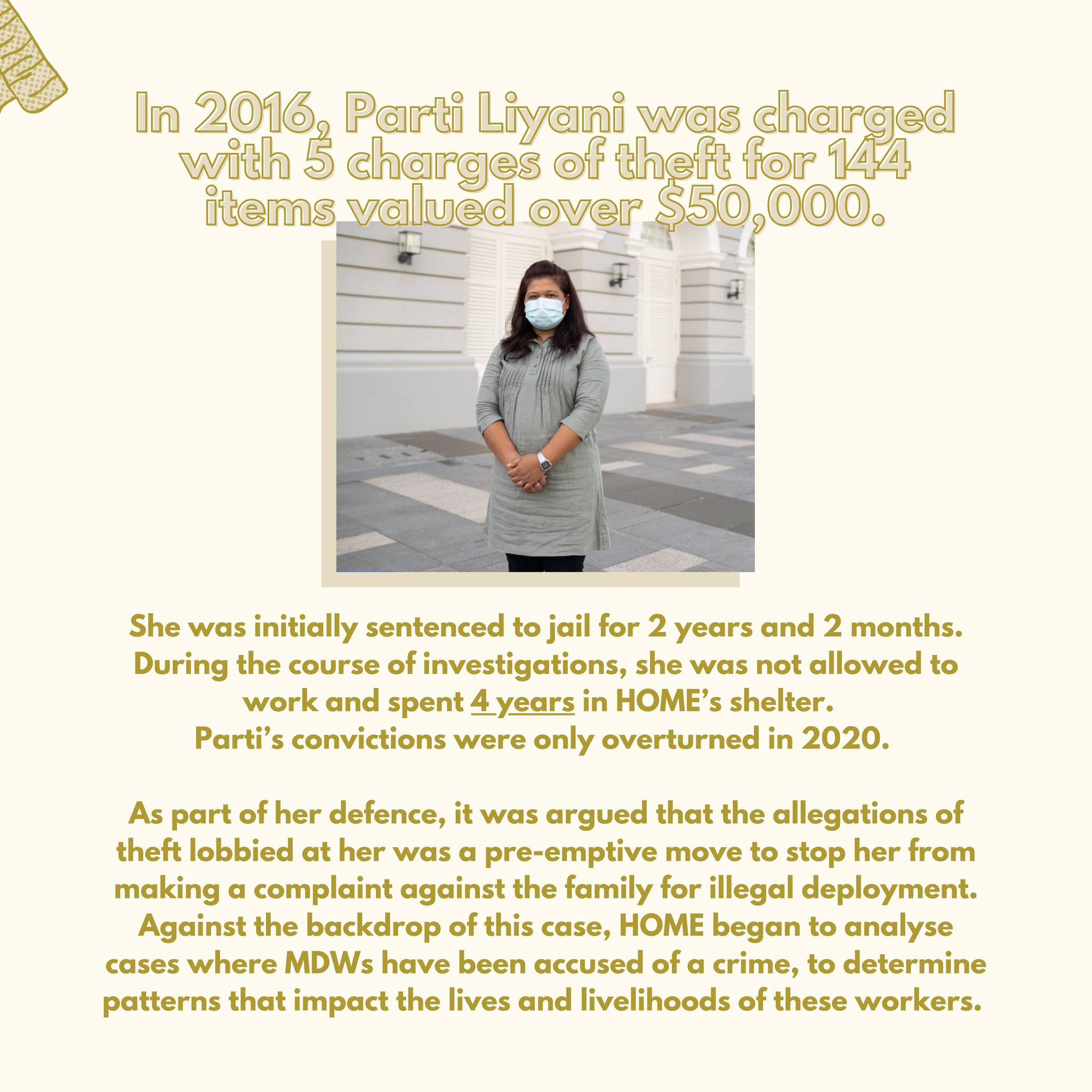SINGAPORE: In a report on criminal accusations made against domestic helpers in Singapore, the Humanitarian Organisation for Migration Economics (HOME) said that the vast majority, or more than 80 per cent, of these accusations, do not lead to criminal charges.
HOME’s study, released earlier this week, noted that theft is “overwhelmingly the most common accusation made” against migrant domestic workers (MDW).
The report cited the high-profile case of Ms Parti Liyani, the Indonesian helper convicted in 2019 after she was accused of theft by her employer, Mr Liew Mun Leong, the former chairman of the Changi Airport Group. The conviction was overturned a year later by the High Court.

The report aims to take a close look at how prevalent these accusations are, especially the ones that are petty in nature and tend to be punitive or retaliatory, as well as their relative and disproportionate impact on the helpers.
HOME noted that such accusations leave helpers legally, financially, and socially vulnerable, adding that MDWs often need to stay in a shelter while the accusations are investigated, which significantly disrupts their lives and sources of income.
“When an accusation is made against a MDW, they are often unable to work, must leave the only home they have in Singapore, and have to deal with months of hardship while investigations are ongoing.”
HOME added that the precarious position helpers find themselves in when accused of an offence is a result of “both by the unprecedented amount of power that employers have over the MDWs in their hire, as well as the currently opaque system by which investigating authorities grant the accused the opportunity to continue working.”
The organization also drew up a list of recommendations that would serve to help the helpers who have been accused of offences.
- Helpers assisting in investigations should be allowed to continue working.
- MDWs who have been issued stern warnings should likewise be allowed to work, as current policy disallows work permit holders who’ve been issued stern warnings are generally disbarred from seeking employment.
- Live-out options should be made available for domestic workers, which would to help professionalise the domestic sector and make helpers less susceptible to accusations against them.
- Right to change employers without having to seek the consent of their current employers, which is the current policy.
HOME’s full report may be accessed here.
/TISG

